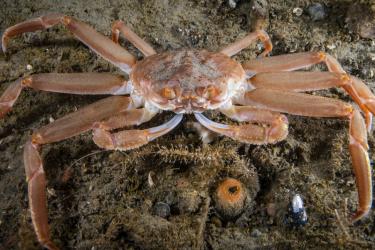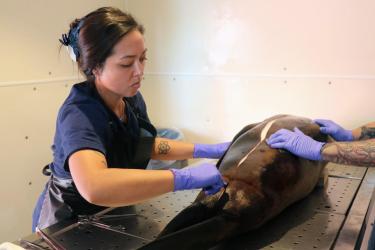I am pleased that the United States and Canada reached a new agreement on a coast wide Pacific halibut quota on Feb. 1, at the International Pacific Halibut Commission meeting in Victoria, Canada. The new quota of 38.61 million pounds reflects an increase of 1.4 million pounds above the 2018 quota. Based on input from stakeholders and analysis from Commission science reports, the United States and Canada agreed to a rebalancing of the coast wide quota resulting in Canada receiving a 17.7% share and the U.S. receiving an 82.3% share. The IPHC also agreed to a 1.65 million pound allocation for the U.S. West Coast (Area 2A) to address tribal, recreational, and commercial needs in that area. The IPHC intends to apply the allocation process developed at this meeting over the next four years, pending any unanticipated conservation or management concerns. While the overall quota for 2019 is a slight increase over 2018, the catch limits agreed to at the meeting reflect a sensible, conservative approach that will secure the future of this iconic and economically important species. We solved several challenging international fishery management issues and we accomplished our goal in the spirit of cooperation and compromise. We look forward to working closely with our partners at future meetings.
Background on Pacific halibut
- Pacific halibut is an economically and culturally important resource harvested in commercial, tribal, personal use, sport, and subsistence fisheries in the United States and Canada.
- The United States and Canada have jointly managed halibut throughout its entire range along the west coast since 1923 through this bilateral commission.
- The IPHC is comprised of 6 voting Commissioners, 3 from the United States and 3 from Canada.
- Under the provisions of the Northern Pacific Halibut Act (Halibut Act), a majority of U.S. and Canadian Commissioners must agree to recommend revised catch limits or other regulations for consideration and possible adoption by the Secretary of State with the concurrence of the Secretary of Commerce.
- The Pacific halibut stock has been in a low and declining state for the past ten years. The current state is thought to be related to decadal shifts in environmental conditions affecting recruitment and unexplained low weight-at-age. In addition, recent IPHC stock assessments indicate that catch limits in the early 2000s were based on overly optimistic estimates of biomass, leading to higher fishing mortality rates than were intended.


